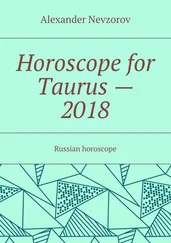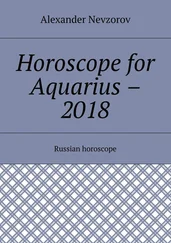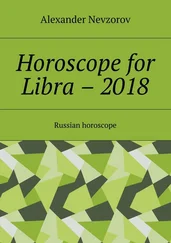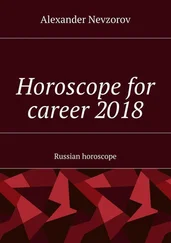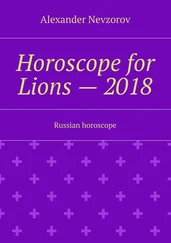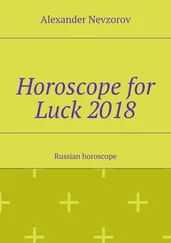Despite my rather troubled mind I enjoyed my stay in Paris. It was pleasant to be able to pass the time without any thought of immediate work, and a good meal often did much to dispel the nagging doubts about what I should do and how I should do it. I courted all kinds of dangers which lurked for anyone in my visa less state. Never once, the whole time I was in Paris, was I asked for my papers though my stamping grounds ranged from the blackest of black market restaurants to American officers' messes.
All things come to an end in time and on January 6, 1945, at nine in the morning, I took off for Moscow in the first Soviet plane to leave France since the liberation. The plane was alleged to be carrying Russian prisoners of war being repatriated to Russia, but this was a convenient Soviet fiction. How hollow a fiction it was can be seen from the fact that the plane had four vacant seats despite the equally hard fact that there were over a million Russian prisoners of war in France clamouring for repatriation. It is perhaps pertinent also to note that in our planeload there was- in fact only one genuine Russian prisoner of war.
All the passengers held Russian repatriation certificates. Certificate No. 1 was held by a veteran Bolshevik, Myasnikoff. A likable old ruffian, looking like a venerable edition of Maxim Gorki, he had led the general strike in Russia in the early 1920s which almost overthrew Lenin and Trotsky. Trotsky had wanted him shot but Lenin had overruled this and he had merely been exiled to Siberia. He was offered a pardon if he cared to return to European Russia, which he had accepted. Later he had again been exiled. This time he had escaped to Turkey and from there had come to France, where Briand offered him asylum. During the war years he had been in hiding, as the Germans were after him, and after the liberation he had been seen by Bogomolov, who had offered him a pardon and an important post in Moscow if he would return. Thorez had offered him the same, and Myasnikoff showed me a letter signed by Thorez when the latter had been in Moscow, couched in similar terms. He had no liking for Stalin and I think had little real hope that the promises would be honoured. I never saw or heard of him again after I reached Moscow, nor have I ever seen his name in the press. It is more than likely that he is now tasting Siberian exile for the third time. He had an extremely alert brain and did much to lighten the tedium of the journey.
Certificate No. 3 was held by Alexander Koulicheff, who was Rado. Certificate No. 4 was used by a certain Ivanovsky, also a Soviet agent of questionable nationality. He spoke Russian and French fluently and some English. I gather that he had spent some if not most of the war in hiding in France. I know nothing more about him but that he was a most charming travelling companion. The holder of certificate No. 5 was the only genuine prisoner of war on the plane. His patronymic I have forgotten but he was known to all of us as Vladimir. A virile young tough, he had been a submarine commander in the Red Navy before he had been captured, and he had been decorated as a "Hero of the Soviet Union." On his escape he had organised the Vladimir Group of the French Resistance and had twice been decorated by the French for his activities as a partisan. There were also on board a diplomat from London, Smirnov, and another diplomat and his wife.
Certificate No. 2 was held by Alfred Fedorovitch Lapidus, former Esthonian national, now a Soviet citizen, who had been deported from Tallinn to France by the Germans. In fact, none other than myself.
This was the planeload of "returning P.O.W.s," and a nice representative collection it was, too. As regards the real P.O.W.s, no such luxury as a plane ride back to the Soviet Union was in store for them. They were first checked to determine their degree of collaboration with the enemy and then again checked to find out why they had disobeyed Stalin's order to fight to the death. Very few of them on their return found that liberty in their homeland for which they had fought. The majority of them were drafted into labour camps, where they will remain till they die or are worked to death- not that there is much difference between the two. The Soviet state has very short shrift for those who do not obey implicitly, and the labour camps are always hungry for new blood.
The journey to Cairo was as uneventful and boring as all air travel. I had not flown for many years and at first it was interesting to look down at the French landscape and to observe the precision with which the Allied air forces had bombed the bridges and the airfields over which we flew. After Marseilles, where we stopped the night, there was only the Mediterranean and then the endless tedium of the North African coast. It was dark by the time we reached the Egyptian border and so the battlefield of El Alamein was hidden from us. The only breaks in the tedium were the two nights we spent at Marseilles and Castel Benito, where we were guests of the R.A.F. in their mess. As the first Soviet planeload through, we were objects of some curiosity and equally targets for the traditional R.A.F. hospitality. Liberally entertained in the mess, we were sent off each morning laden with chocolate, tobacco, and whiskey. I spent a large portion of the night at Castel Benito telling a large crowd of officers about my experiences as a prisoner of the Nazis. It was with some difficulty that I kept my face straight and my character up as Lapidus, the exiled Es- thonian, in a mixture of bad English and French.
We were due to spend two nights in Cairo and as a result did not stay at the airport, but went into town and were billeted at the Luna Park. Accommodation, as always in Cairo during the war, was short and the manager said that we would have to share rooms. Rather to my surprise Rado spoke up; it was almost the first time he had opened his mouth since we had left Le Bourget, and said that he would share with me if I was agreeable. 1
I cannot say that he was a lively room companion. | The first night he hardly said a word and declined to come out with me into Cairo for a final fling. On my return from a pleasant and convivial evening he was asleep- or pretending to be. The second evening he was, if possible, even more depressed but did become somewhat loquacious. He said that he feared we were in for a difficult time in Moscow, and compared our situation to that of a captain who has lost his ship. No explanation would convince the director that it had not been our fault that we had lost the sources which the Centre valued so highly.
I attempted to reason with him and calm his fears. I pointed out that my arrest and the consequent breakdown of communications had been entirely the fault of the Centre. They had ordered transmissions to continue after the arrest of the Hamels and Bolli, when they knew that the heat was on. Also they had never given us sufficient funds to provide an adequate reserve of trained operators and spare transmitters. In any case, I added, the main sources, Werther and Olga and the others, still remained and could be made instantly available as soon as communications were re-established. Also the Centre had not been deprived of these sources altogether, as I had brought a quantity of material with me to Paris which had been sent back to Moscow; so that they had in fact the cream of all the material available for the year November 1943-November 1944 when the Swiss network had been out of touch.
This information really startled Rado and he became more depressed than before. He bewailed the fact that he had not discussed the matter with me in Paris. Rather unkindly, I pointed out that he had only himself to blame, as I had given him my address after our first meeting at the dinner and he had not bothered to come round. It was entirely his own fault that he was going to Moscow unaware of the true state of affairs, and as an old hand at the game, he must know the danger of putting in reports without bothering to see if they tallied with the facts.
Читать дальше




